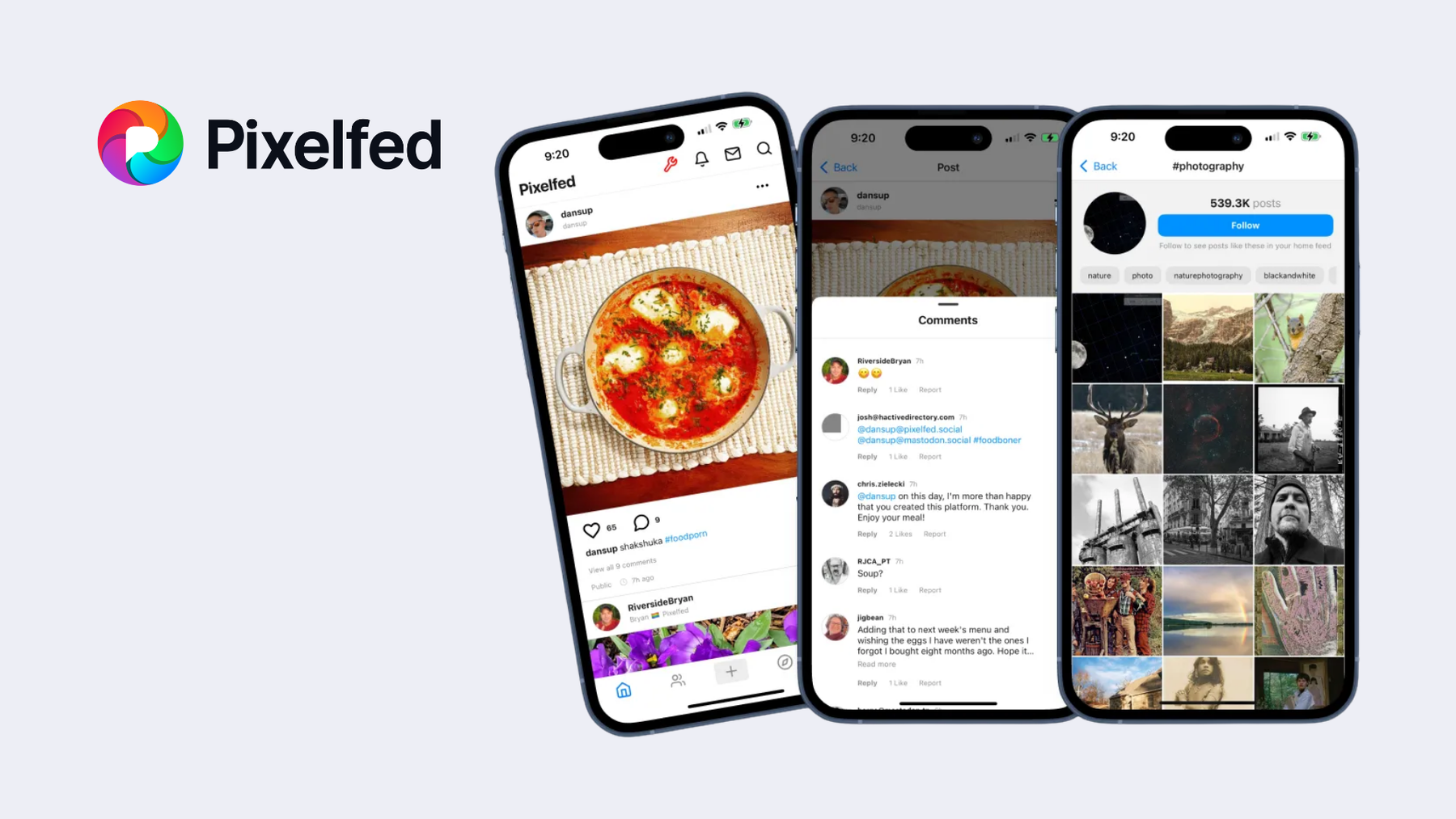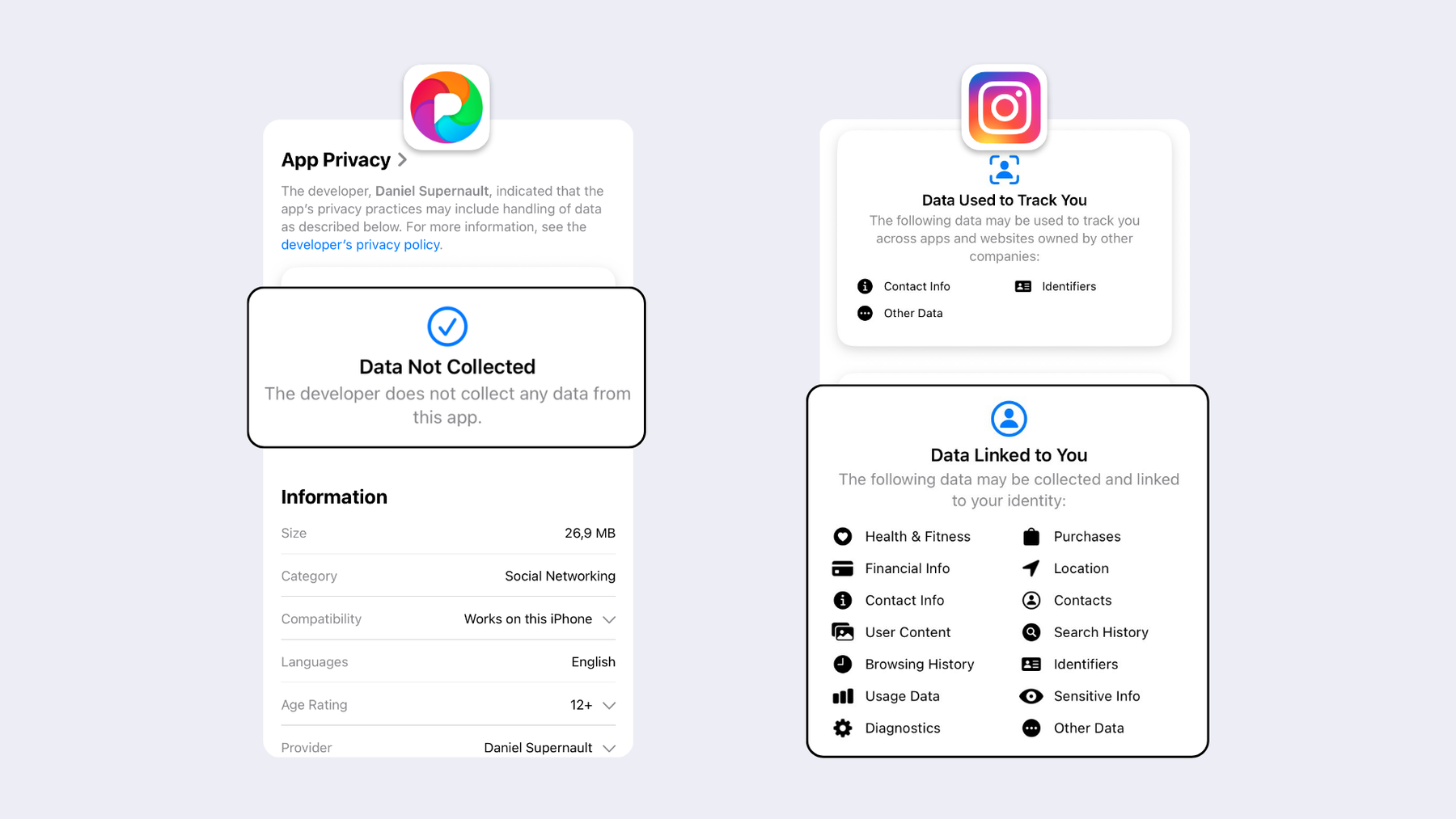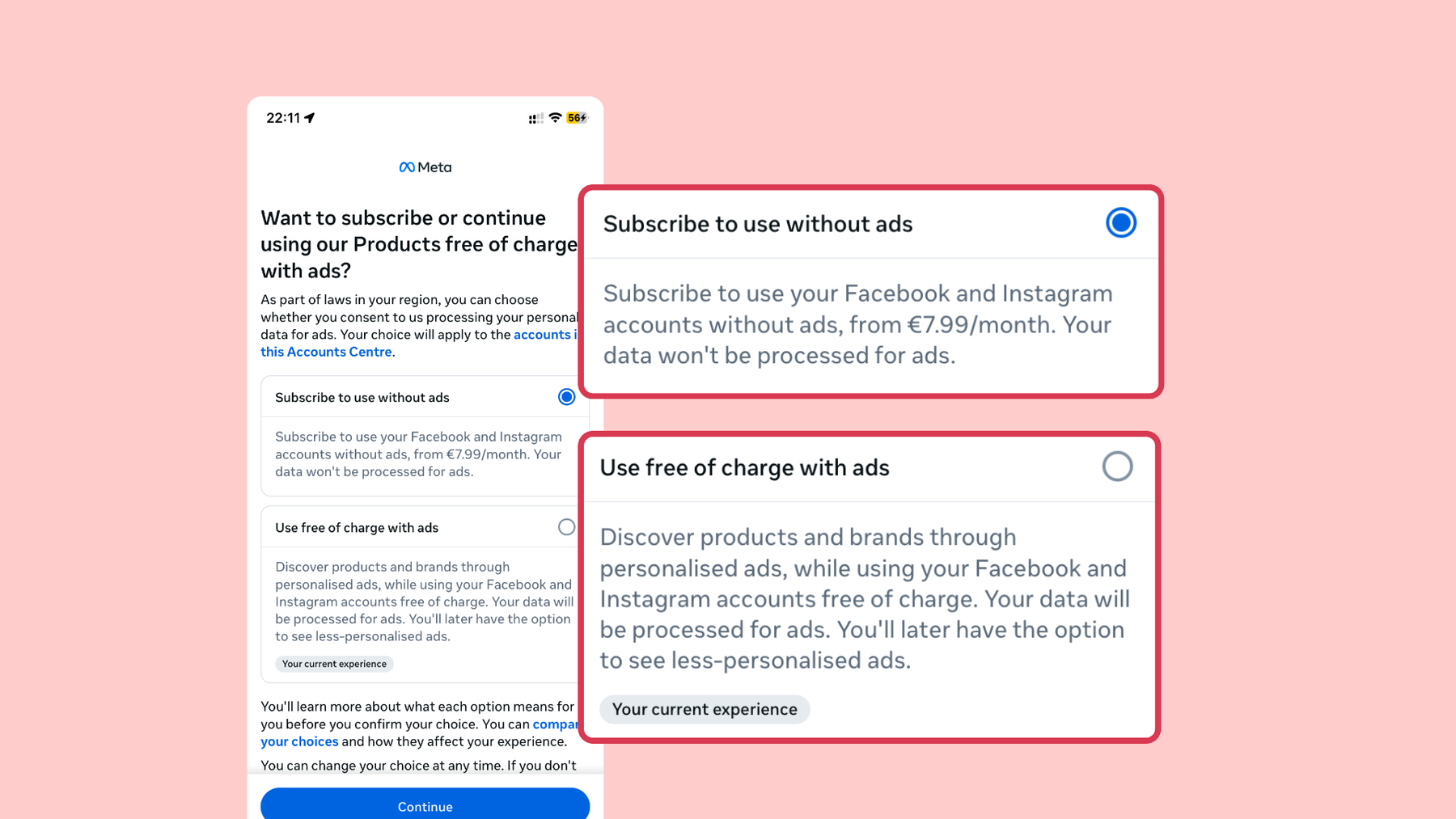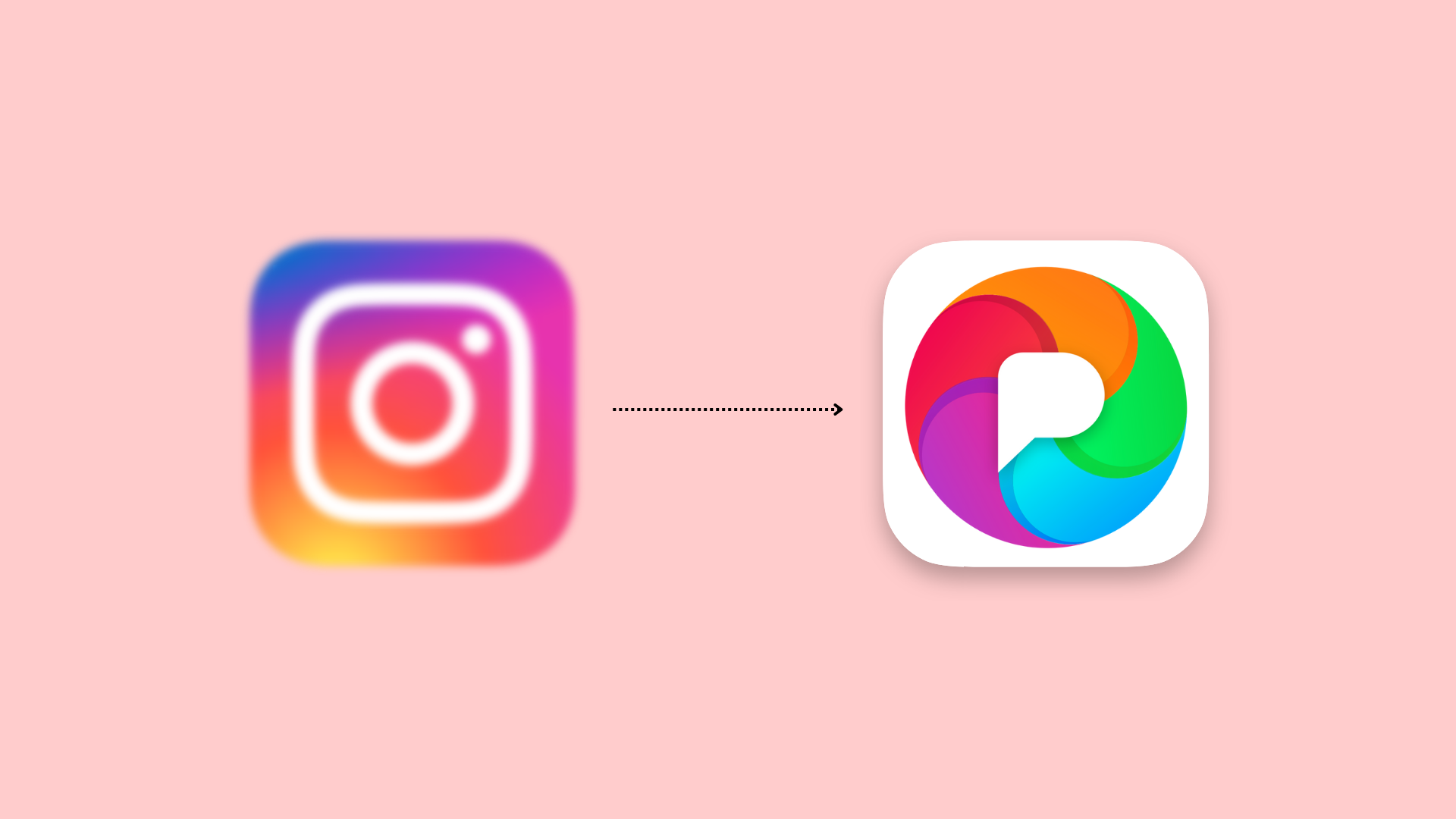Best alternatives to Instagram in 2025
Pay €7.99/month for ad-free usage or pay with your data and see personalized ads? No thanks Meta, we will take neither. In this in-depth guide, we look at the best Instagram alternative in 2025.
Best Instagram alternative
First things first: delete Instagram and then choose a better Insta alternative!
Pixelfed


Pixelfed is the perfect alternative to Instagram especially for those who value privacy and want ad-free scrolling.
Pixelfed is the ethical alternative to Instagram for those who are looking for a social app that has a strong focus on privacy. This alternative social platform has been described as “What Instagram used to be.” So if you miss Instagram in the good old days before content manipulation algorithms, this could be the Insta replacement you’re looking for.
This Instagram alternative allows you to share pictures, post stories, use filters, and send direct messages. Generally, the Pixelfed app offers features similar to Instagram, but the experience of using this platform is much better as there are no ads, the content timeline is chronological, and it’s free to use!
Pixelfed is a federated platform that’s community-owned, open source, has no ads, and does not track you. The Pixelfed app is available for download on Android and iOS. It also has a desktop app or can be accessed via the browser of your choice.


Instagram collects and links a lot of your personal data to you, Pixelfed on the other hand, collects none! Screenshots taken from Pixelfed and Instagram on the App Store.
Why are people leaving Instagram? (+Meta)
- Instagram is owned by Meta
Meta the company behind Instagram, Facebook, and Whatsapp, does not have a clean reputation when it comes to its users’ best interest, as it continuously puts profit over people. Over the years, Meta has come under fire globally for various reasons: From the Cambridge Analytica Scandal where it harvested Facebook users’ data which was then used for targeting personalised political advertisements, to being exposed to knowing that Instagram is toxic for teenage girls and that its content has the potential to worsen their body image issues. And more recently, it was ruled that Meta illegally collected the menstrual data of Flo app users. By now, everyone knows that Meta’s social platforms work the way they are supposed to - with all the scandals that come along.
- Social media fatigue
Instagram used to be a loved social platform where people would post images, comment, and engage with each other. But with the rise in more ads, algorithms choosing what you see, and being targeted with unwanted content, many are suffering from social media fatigue. Now people are actively choosing to ditch the social apps and practice digital minimalism.
- Privacy concerns
Meta offers all of its products for free, and when something is free, it should be clear that you’re paying with your privacy. Instagram’s parent company, Meta, makes huge profits through advertising. When we use its products, its app tracks and collects our data, sells it to third parties and advertisers, who in return target us with very annoying ads.
When it comes to “free” on the internet, free is not free; you’re the product! So the more we use Instagram and Facebook, the more Meta knows, and the more profit it makes.
What’s scary is that even though Meta is already the biggest social media company in the world, in 2024 it made a record $165 billion in revenues with 99% of annual revenues coming from advertising – it still wants more. Prime examples of this is its recent introduction of ads in WhatsApp and before that, the controversial introduction of Meta AI.
- Instagram is no longer social, it’s negative
Instagram used to feel like a real social platform to follow friends and get updates in photo form. It was a way to stay up to date and in the loop with those you followed. But today real people are posting less, and we are seeing a lot more ads. Even worse, ads from publication websites often have very negative headlines that catch your attention (click bait), but do not benefit you in any way. For many, doom scrolling is no longer social, and Instagram doesn’t offer an authentic experience.
Meta is not the only Big Tech hungry for your data, if you use Google products we’d highly recommend deGoogling and opting for better privacy respecting tools.
Meta’s €7.99 subscription shows just how valuable your data is


Facebook and Instagram users within Europe have to make the choice: pay a high monthly fee to see no ads or use it for free and consent to personalized ads. Screenshot taken from Instagram.
Meta’s introduction of its pay or consent model in the EU, EEA, and Switzerland is a telling sign of the value of your data. Meta subscriptions in the EU cost a whopping €7.99/month just to use Facebook and Instagram without seeing personalized ads. But don’t be fooled - paying almost €10 every month only means you won’t see personalized ads, and that it won’t process your data for ads. It does not make using Meta’s social platforms private, for example, it has not said it will stop collecting your data or app tracking you!
Within Europe Meta now offers users two choices:
-
Subscribe to use Instagram and Facebook without ads for €7.99/month in the EU (cost differs based on region).
-
Use Instagram and Facebook for free, but with personalized ads, and have your data processed.
Meta’s introduction of its pay or consent model to comply with European regulators is a positive thing because it is being more transparent while also giving users an option, but regardless of this, it should be a warning to Meta users of just how much money their data is worth. Data is, so to speak, the new gold of the Internet age. Do you really want to give so much money to the tech giant?
Fortunately, there’s a third option, one that Meta doesn’t mention at all: choose an alternative to Instagram.
Alternatives to Meta
Instagram is just one of Meta’s social platforms. If you’re still using Facebook, the platform that collects, tracks, and knows a lot about you, we’d highly recommend leaving it and replacing it with an alternative. And if you use Whatsapp, there are many alternative encrypted messaging platforms to choose from too.
Alternative social media apps:
Alternative to WhatsApp:
- In-depth guide to the best private WhatsApp alternatives
No to Meta, yes to private & open source platforms
As an end-to-end encrypted email provider that’s privacy-focused, open source, and does not serve ads or track users, it’s awesome to see that there’s more user demand and a growth in niche privacy-focused services.
When Tuta (Tutanota at the time) was created 11 years ago, this was not the case; most people were not aware of how Tech Giants where using and processing their data, or the importance of data privacy. And there were relatively limited privacy-focused services available to choose from. But this is changing, and at a quick rate. Now, people are becoming more aware of privacy, the importance of protecting their data, and are actively leaving big tech services like Gmail and opting for smaller services that do not profit off their data like Tuta Mail, for example.
In addition to more people wanting services that respect their privacy, there are a lot more services and projects being developed, and now it is possible to use alternatives to just about all services - browsers, calendars, video call platforms, Twitter alternatives, and more!
What does this show us? A better web is possible, and it starts with us. ❤️


